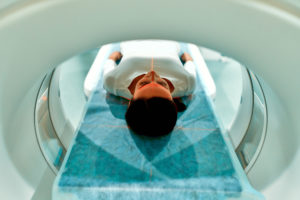 Doctors go through years of education and training to know how to best treat our illnesses and injuries. Sometimes, this means they talk about tests or treatments we don’t fully understand, and it can be easy to trust them without asking questions. But when it comes to our health, it’s important to understand as much as possible about what you might be expecting. If your doctor recommends you have an MRI scan done, you may wonder what that entails and how serious it is. MRIs are an effective diagnostic imaging tool and nothing to worry about, but read on if you want to understand why your doctor has suggested this.
Doctors go through years of education and training to know how to best treat our illnesses and injuries. Sometimes, this means they talk about tests or treatments we don’t fully understand, and it can be easy to trust them without asking questions. But when it comes to our health, it’s important to understand as much as possible about what you might be expecting. If your doctor recommends you have an MRI scan done, you may wonder what that entails and how serious it is. MRIs are an effective diagnostic imaging tool and nothing to worry about, but read on if you want to understand why your doctor has suggested this.
What Is an MRI?
You may know that an MRI scan is a kind of imaging, but not much else. MRI stands for magnetic resonance imaging, a medical imaging technique that uses a combination of a magnetic field and computer-generated radio waves in order to produce a detailed image of the organs and tissues in your body. These images can be produced in 3D, allowing doctors to get a view of your body from many different angles.
An MRI is typically performed by having you lay in a large machine that resembles a metal tube. The tube-shaped elements of the machine are magnets, and when you lay inside of them, the magnetic field temporarily realigns water molecules in your body. Radio waves then cause the aligned atoms to produce faint signals, used to create cross-sectional images of the body. Think of the images like slices of a loaf of bread.
MRIs vs. Other Scans
Depending on why you have sought treatment, there may be other scans a doctor recommends before an MRI. For example, if your symptoms may be related to bones, an x-ray may be the first choice. You may also be sent for a CT scan.
Many people do not know the difference between a CT scan and an MRI scan. While CT scans also create detailed pictures of the body, they tend to display different information. A CT scan is shorter and produces images that tend to be less detailed than MRIs. CT scans also involve the use of radiation, while MRI scans do not, though risk still exists due to the strength of magnets used.
MRIs are typically used when other scans have not produced the expected answers or more specific imaging is needed.
Indications for MRI Scans
MRIs offer a non-invasive way for doctors to examine organs, tissues, and the skeletal system and therefore diagnose a variety of problems.
Potential problems with the brain and spinal cord are a very common reason you may be asked to undergo an MRI. The tool can be used to identify problems such as aneurysms of cerebral vessels, disorders of the eye or inner ear, multiple sclerosis, spinal cord disorders, strokes, tumors, and brain injury resulting from trauma. Special types of MRIs can also produce images of blood flow to certain areas of the brain, creating a view of what areas of the brain handle certain functions.
The heart and blood vessels are also commonly viewed using MRI scans. This can help to assess the size and function of the heart’s chambers, thickness, and movement of the walls of the heart, the extent of damage caused by heart attacks or heart disease, structural problems in the aorta, and inflammation or blockage of the blood vessels.
Other internal organs can be scanned for tumors or abnormalities by an MRI as well. Bones and joint injuries may require an MRI when there are suspected abnormalities of the joints or discs, bone infections, or tumors in the bones and soft tissues. You may also see MRIs used to detect breast cancer when mammography does not provide the necessary information.
What Happens After an MRI?
MRIs are an outpatient procedure that usually do not require sedation, meaning you can resume activity after the scan is over. A radiologist who is specially trained to interpret MRIs will analyze the images produced in conjunction with your doctor to determine any abnormalities or if further imaging is needed. This typically can happen within a couple of days, when you can expect a discussion of your results.
What can you expect from AICA Atlanta? Our clinic features doctors, radiologists, and onsite diagnostic imaging, allowing you to visit one location for your entire diagnostic process. Whether you are experiencing back, brain, bone, or undefined issues, an AICA Atlanta doctor will work with you to determine the scans that are best for your situation. Call us today to begin the process!
